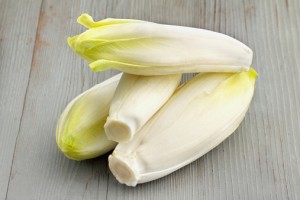Cooking Using Oils: How To Be A Health-Conscious Cook
One of the topics you read a lot about lately in magazines is making healthy choices in the foods we eat and in the way we prepare our favorite dishes. Deep-frying and dipping foods in butter are no longer widely accepted and praised methods for preparing foods. In spite of this, we still have a weakness for that buttery flavor, don't we? And preparing foods with oils continues to be a very popular technique. Product developers have acknowledged both this and our health-conscious desires, promoting numerous cooking oils and butter products that all claim to be the best.
But with all these options, how do you know which ones to use, and which ones to discard? In this article are a few points on cooking with oils for people concerned with healthy diets.
Butter
The popularity of butter over the years has remained constant. Very few individuals don't like the taste, and investigations have shown that "real butter" (made from natural ingredients) offers sources of the vitamins A, E, K, and D.
Butter has many uses in the kitchen, and can be used with baking, cooking, spread on sandwiches, and much more.
Margarine
Margarine is a relatively new product, and is becoming more healthy as product development continues. When it was initially presented as a substitute for high fat butter, it was made of too much trans fat. Trans fat raises bad cholesterol levels.
Margarine does taste good when used as a cooking oil, and it has less fat than butter and most liquid oils. It is also significantly cheaper than cooking with oils or butter, comes in a range of products, is spreadable, and is a source of Vitamin E.
Canola oil
Canola oil is low in saturated fat, has a better fatty acid composition than other oils, and has many physicians claiming it is able to lower the risk of heart disease.
Canola oil is quite popular by those who prefer cooking with oils (liquid ones). It works well for sauteing, frying (on low temperatures), and in marinade. Canola oil also doesn't have a powerful flavor, which makes it a suitable choice for spicy dishes or for foods where you specifically don't want the oil to interfere the flavor of your meal.
Olive oil
Olive oil has been around for years, and has been used world-wide Olive oil has a flavor all its own, and a long storage life. Doctors claim that this oil is full of heart-healthy ingredients, will help to lower cholesterol levels, and even reduce the danger of cancer. It is rich in monounsaturated fat (the "good" kind of fat), as well as in antioxidants.
Olive oil should be heated just on low to medium heat, as with high heat it rapidly burns. It is healthiest, however, when it remains uncooked, and used in food items such as salad dressing or dipping sauce.
There are several different kinds and flavors of cooking oils on the market nowadays in grocery stores, but these are the most popular four. Having a healthy diet program means cooking healthy food, which is really where your knowledge of cooking oils is important.
-
How I Lost 30 Pounds In Two And A Half Months
Losing weight is something you hear people talk about all the time.
-
The Band FillAdjusting Your LapBand
A fill is nothing to be worried about. The actual procedure takes only
-
Why Can't I Lose Weight?
Clearly, a key concern on the Physical Path is our ability to maint
-
Discover How To Burn Fat for Fast Weight Loss - Part 1
Lets face it...it seems like every time you turn your head, there
-
The South Beach Diet Plan - How To Sail Through Phase 1
So you want to try the South Beach Diet Plan, but are a little (or
-
Walking pneumonia vs. pneumonia, differences in symptoms, causes, and treatment
Atypical pneumonia, also known as walking pneumonia, is a form
- DON'T MISS
- The Subconscious Control of Your Diet and Weight Loss
- Lose Fat With This Information
- Lose Weight Fast With Capsiplex
- Consumer Health Awareness Teaches You How to Prevent Childhood Obesity
- Healthy Diet Plans and Their Benefits
- Have Flabby Thigh Fat You Need To lose?
- Air Climber Discount
- My Story: “In Weight Loss, Everyone Has An Opinion”
- Weight Loss-programs And Your Drive
- The Secret to Healthy Weight Loss and Unlimited Energy




